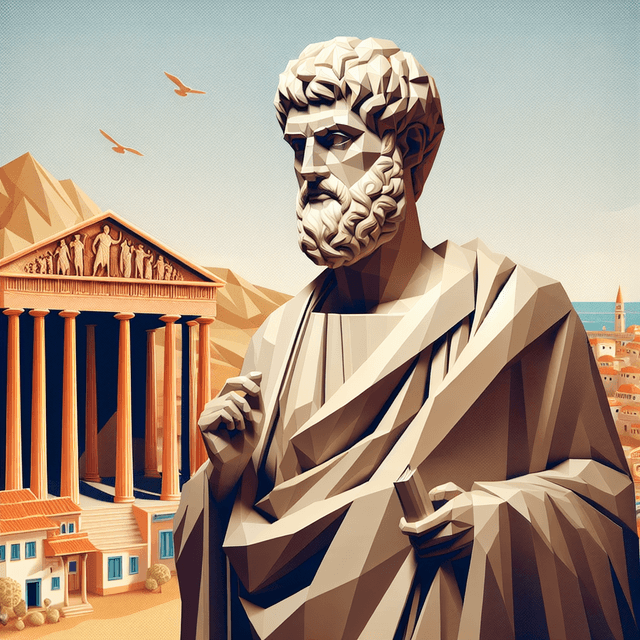Zeno Of Citium
1 December 2023
Early Life and Influence
Zeno of Citium, born in Cyprus around 334 BCE, was known for being the founder of Stoicism, a philosophy that emphasizes self-control, virtue, and resilience. Influenced by earlier philosophers such as Socrates, Zeno's teachings gained popularity and inspired generations of thinkers and practitioners. His school in Athens became a hub for philosophical discussions, attracting students and followers from diverse backgrounds.
Teachings and Legacy
Zeno's philosophy, Stoicism, gained prominence in the Hellenistic world and continued to evolve through the works of later Stoic philosophers such as Seneca, Epictetus, and Marcus Aurelius. His emphasis on living in harmony with nature, accepting the inevitable, and cultivating inner strength resonated with individuals seeking guidance in turbulent times. Today, Stoic principles remain relevant, offering practical wisdom for managing modern-day challenges and fostering mental well-being.

Zeno, Chrysippus, and all their kind will give you advice that is temperate, honourable, and suitable.
- Seneca
Stoicism in Practice
Central to Zeno's teachings was the concept of living in accordance with nature, which involves cultivating virtues like wisdom, courage, justice, and moderation. Practitioners of Stoicism engage in exercises such as negative visualization, self-reflection, and ethical decision-making to attain tranquility and moral clarity. By embracing the dichotomy of control and focusing on what is within their power, individuals can navigate adversity with composure and integrity, as advocated by Zeno.
Relevance Today
Zeno's insights on the nature of happiness, resilience, and ethical living continue to resonate in contemporary society. The principles of Stoicism have found applications in fields ranging from cognitive-behavioral therapy to leadership development, offering timeless guidance for personal growth and societal well-being. As we navigate the complexities of the modern world, Zeno's teachings serve as a source of inspiration for individuals seeking clarity, purpose, and emotional resilience.

Epictetus and Marcus Aurelius
Zeno's legacy continued through his intellectual successors, including the influential Stoic philosophers Epictetus and Marcus Aurelius. Their writings and teachings further expanded the practical applications of Stoicism, emphasizing the importance of virtue, rationality, and moral fortitude in facing life's adversities. The enduring relevance of Stoic philosophy underscores the enduring impact of Zeno's original insights on human flourishing.
philosophers
Conclusion
Zeno of Citium's contributions to philosophy and the enduring legacy of Stoicism exemplify the timeless appeal of his teachings. By delving into the profound wisdom of Zeno and the Stoic tradition, individuals can gain valuable insights into navigating life's challenges, fostering inner strength, and cultivating a resilient and virtuous character. The enduring relevance of Zeno's philosophy underscores its enduring value in promoting human well-being and ethical living.

Written by

Max writes is a online stoicism content writer. He is passionate about making stoicism accessible for everyone.